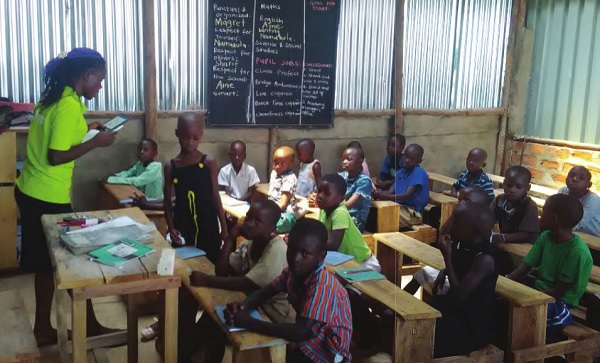
Amidst the ping pong between the Bridge International Academies franchise in Uganda and the Education ministry, are parents who have found hope in the services offered by schools under the American franchise.
One such parent is Immaculate Nakhumitsa who has two children attending Bridge International Academy Magamaga in Mayuge district.
She has a girl in Primary One and a boy in baby class. She is impressed by what she is seeing.
“My girl can express herself freely,” she says, “They emphasize English speaking. One other thing I have noted is that the kids are always smart.”
However her joy may be short lived because of the face-off between the school and the ministry. She is hanging on thin hope.
“In the end of term meeting, we were worried because we had that Bridge schools were closing. (But) They told us to be firm; it is what we wanted to hear.”
In reality, Nakhumitsa and thousands of other parents have had to wait for outcomes of developments that Bridge International has little or no control over, including the outcome of an application filed by Bridge Academies in the High Court’s Civil Division. The date for the case was Sept. 22, just four days before the critical third term opens on Sept.26.
Meanwhile, the Bridge Academies managers in Uganda sound distressed.
“We have no issues with the Ministry. We just want to work smoothly,” says Andrew White, the Expansion Director for Bridge International Academies Uganda. “There is no basis for them closing the schools, they have seen our materials. We want children in Uganda to learn.
“We have 12,000 kids in schools ranging from Kasese, Busia, where will all these children go? This is a free market economy. Everyone should have a choice as long as they are in adherence,” he said.
When The Independent interviewed White, he said he does not know why there is so much pushback against Bridge schools despite the service it is offering to families in the country’s rural areas.
At the time, the High Court had issued an injunction on Sept. 2 blocking the Ministry of Education from closing the school’s operations in Uganda. It was the crest of an impasse that had been escalating for over a year.
From the time, the American-owned education franchise started business in Uganda in February 2015; it has faced opposition with some officials at the Ministry of Education.
It has been accused of applying a wrong model of teaching, using untrained teachers, not comprehensively implementing the national curriculum, and operating many more schools than they report. In another case, one of the Bridge schools was found conducting business during holiday which is banned, and having been wrongly licensed by an unauthorised entity.
Bridge has battled the accusations in the High Court which quashed a directive issued by the Permanent Secretary, Ministry of Education, Rose Nassali. The court injunction forbidding closure of the Bridge schools stated: “The directions contained in the said letter are irrational, arbitrary, illegal and oppressive as they were issued without according the Applicant a hearing and were in the nature of a blanket order affecting all the Applicant’s 63 academies in Uganda that were never the subject of any investigation by the Ministry of Education and Sports.”
It further stated: “The directions are extremely oppressive to the over twelve thousand pupils in the Applicant’s academies whose parents were never consulted before making such a decision.”
The injunction was received by the Attorney General.
The Attorney General could not be reached for a comment by press time.
But Nassali remains told The Independent that the Bridge schools will remain closed.
She said she was not aware of any court injunction quashed her July 25 directive to District Education Officers to close the schools.
“I was not served,” she said.
Attempts to reach the lawyer of Bridge International Academies, Isaac Walukaga, were fruitless however The Independent has seen a copy of the court injunction halting Nassali’s directive to the schools.
“Instead of running around in the media, they should meet the basic standards for which we closed them,” Nassali says.
“They know why they are closed,” she said when pressed to explain what standards the schools should meet in order to be opened.
In spite of Bridge Schools offering a low cost service in education with fees ranging from Shs60,000 to 80,000, the school’s critics say that its teachers at Bridge receive inadequate training and that the schools do not comprehensively implement the national curriculum.
Now as schools are preparing for third term, the Ministry is once again going after the schools. Tony Mukasa Lusambu, the Assistant Commissioner for Primary Education says they must remain closed. “Bridge schools have to close. The resolution came from Parliament which is the legislative body. We have written to District Education Officers and Chief Administrative Officers to implement the closure.”
Lusambu though says he has not followed up to see whether the particular administrators are implementing the directive.
Lusambu in an earlier interview told The Independent of an incident in Mubende where a Bridge school was found to be conducting classes during holiday time. Among other anomalies noted by the DEO of Mubende who conducted an inspection of the school was that the Bridge school in the district acquired a license from the Municipal Council of Mubende district, which does not have authority to issue one.
 The Independent Uganda: You get the Truth we Pay the Price
The Independent Uganda: You get the Truth we Pay the Price


